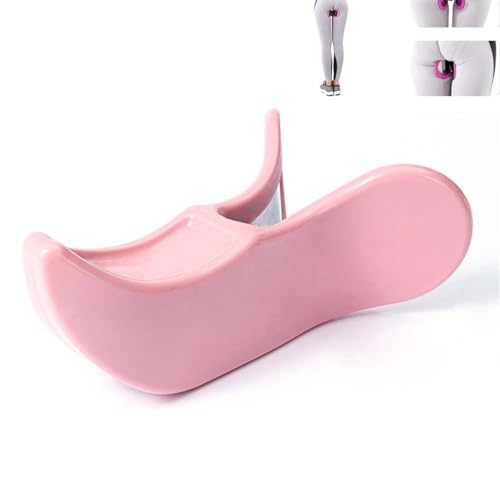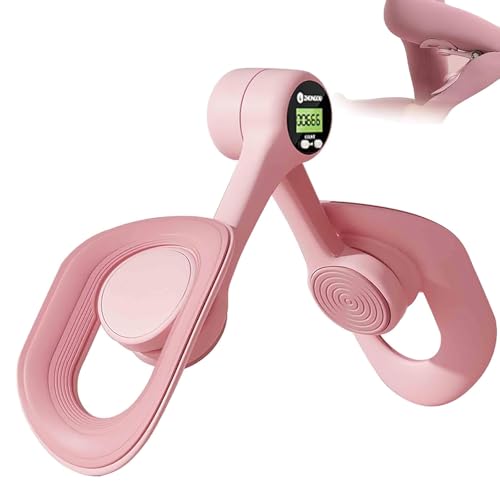Understanding Pelvic Floor Exercisers: What They Are and How They Work
What are Pelvic Floor Exercisers?
Pelvic floor exercisers are devices designed to help strengthen the pelvic floor muscles. These muscles support various organs, including the bladder and uterus, and play a crucial role in our overall pelvic health. By using a pelvic floor exerciser, we can engage these muscles to improve their strength and endurance.
How Do They Work?
Pelvic floor exercisers typically function by creating resistance or providing feedback when muscles contract. This can involve using weights, vibrations, or biofeedback mechanisms to let us know when we’ve engaged the right muscles. By regularly using these devices, we can enhance our muscle control, which can lead to improved bladder control and increased sexual pleasure.
Benefits of Using a Pelvic Floor Exerciser: Enhancing Health and Wellbeing
Improved Bladder Control
One of the most significant benefits is improved bladder control. For many, issues like incontinence can be an embarrassing problem. By strengthening the pelvic floor with an exerciser, we may significantly reduce instances of leakage, thereby boosting confidence in social and active situations.
Enhanced Sexual Function
Using a pelvic floor exerciser can also lead to enhanced sexual satisfaction. Strong pelvic muscles contribute to stronger orgasms and may improve overall sexual responsiveness, creating a more enjoyable experience for us.
Support During Pregnancy and Postpartum Recovery
For those who are pregnant or have recently given birth, pelvic floor exercisers can provide crucial support. Strengthening these muscles during pregnancy can help manage pressure on the bladder and lessen discomfort. Moreover, they are beneficial for recovery after childbirth, aiding in regaining muscle tone and function.
How to Choose the Right Pelvic Floor Exerciser: Key Features to Consider
Material and Design
When selecting a pelvic floor exerciser, consider the material and design. Look for products made from body-safe materials like silicone, which are easy to clean and comfortable to use. The design should allow for a comfortable grip, ensuring that we can use it effectively without discomfort.
Adjustable Resistance Levels
Opt for an exerciser that offers adjustable resistance levels. This feature is essential as it allows us to tailor the intensity of our workouts according to our current strength and progressively challenge our muscles as we improve.
User-Friendly Features
Check for additional user-friendly features such as vibrations for added stimulation or digital connectivity for progress tracking. These enhancements can make our exercise routines more engaging and effective, encouraging consistent use.
Using Your Pelvic Floor Exerciser: Tips for Effective Results
Start Slow
As with any new exercise regimen, starting slow is key. We suggest beginning with short sessions to allow our muscles to adapt gradually. Listen to our bodies and increase session lengths and resistance as we become more comfortable.
Focus on Technique
Proper technique is crucial for effective results. We should ensure that we are targeting the right muscles by focusing on contracting and relaxing them deliberately. Engaging the core along with our pelvic floor can enhance our technique.
Consistency is Key
To truly see benefits, consistency is essential. We recommend integrating pelvic floor exercises into our routine, aiming for a few sessions each week. Setting reminders can help keep us accountable and ensure we stay on track.
Incorporating Pelvic Floor Exercises into Your Daily Routine: Making It Easy
Find the Right Time
Incorporating pelvic floor exercises into our daily routine can be achieved by finding a time that works best for us. This could be during our morning routine, while watching television, or even during commuting, as many exercisers are discreet and portable.
Pairing with Other Activities
We can also make it easier by pairing pelvic floor exercises with other daily activities. For example, we could use our exerciser while doing household chores or during our lunch break. This dual-tasking can make the process feel less daunting.
Tracking Progress
Tracking our progress can keep us motivated. We might consider using a journal or app to note down our sessions and any improvements we notice. This not only helps in managing our routine but also encourages us to stick with it by highlighting our progress.


















